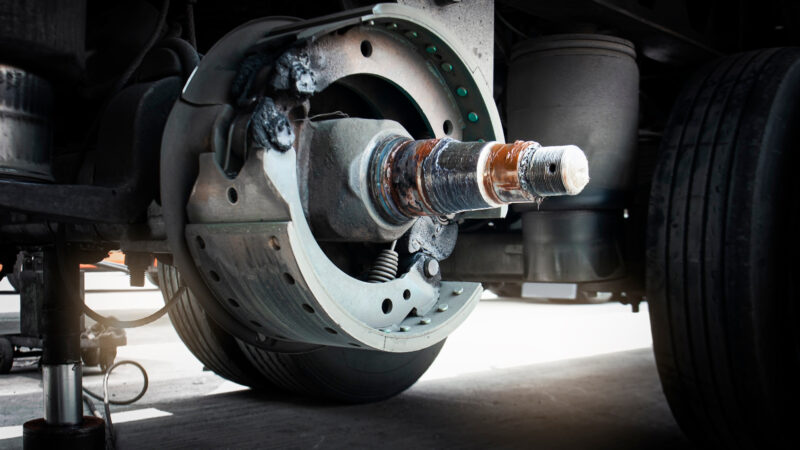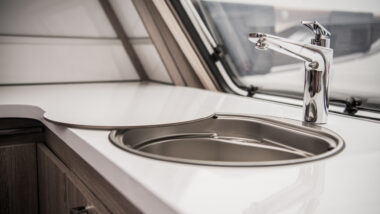Table of Contents Show
While having a strong and capable truck for towing is important, being able to pull a large amount of weight isn’t only half of the job. Knowing how to adjust trailer brakes is essential if you plan to tow RVs and other trailers regularly.
You want to have confidence that our vehicle will also be able to stop that heavy load when you need to. Luckily, it’s not an arduous task and only takes a minute or two in most situations.
What Are Trailer Brakes?
Trailer brakes are a set of electrical brakes on larger trailers to assist a tow vehicle with stopping. The electric brakes use the tow vehicle’s electrical system and activate when the driver presses their foot on the brake pedal.
They can help assist with stopping so the tow vehicle is not bearing the full weight of the task. You won’t find them on smaller trailers, but they’re essential safety components on larger and heavier trailers.
When Should You Use a Trailer Brake?
Most states require drivers to use electric brakes on trailers exceeding 1,500 pounds.
All trailers over 3,000 pounds must have brakes on all wheel axles. If trailer brakes are available, there’s no excuse not to use them.
They can reduce wear and tear on your tow vehicle’s braking system and decrease stopping distance. Towing a trailer that’s over 4,000 pounds with no trailer brakes is extremely dangerous and puts you and other drivers on the road at risk.
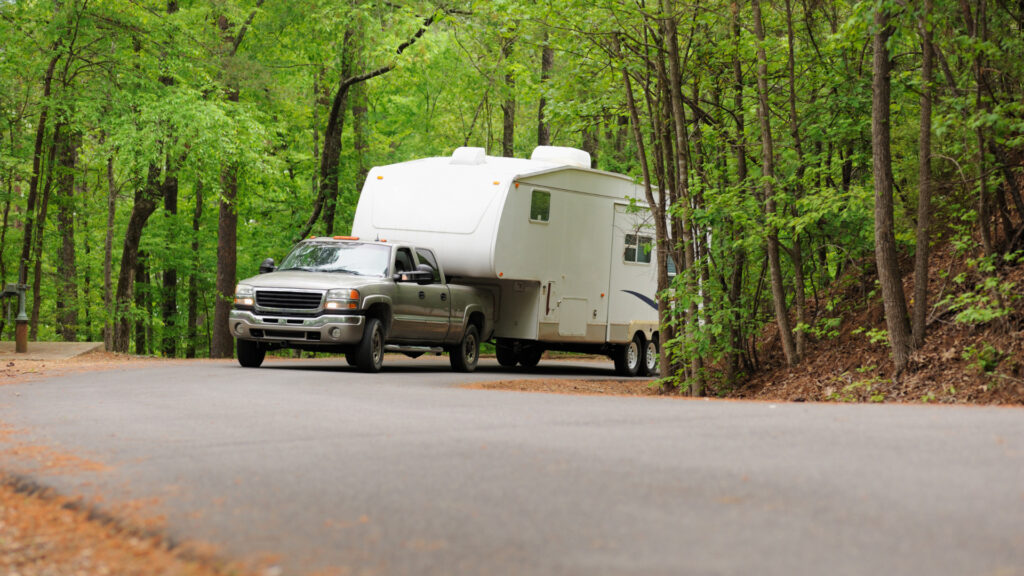
Benefits of Trailer Brakes
There are several reasons why trailer brakes are great. Let’s see why you and your tow vehicle enjoy having a trailer with a braking system.
Increased Control
You never know what the road or weather will throw at you. Having and using your trailer brakes can help increase the amount of control you have over your trailer.
If your trailer begins to sway, you can simply tap the brakes. It will apply a firm amount of pressure on your wheels and help you to regain control.
Trailer sway can occur with or without notice and be very dangerous.
Improved Safety
A trailer braking system greatly improves safety for you and other drivers on the road. Not only do you have more control of your vehicle, but you’re not taxing your brakes nearly as much.
This can make a huge difference when going through mountain passes or in areas with steady negative grades. Towing a trailer in these conditions can be extremely stressful.
Your trailer braking system can help ease your fears and keep you safe.
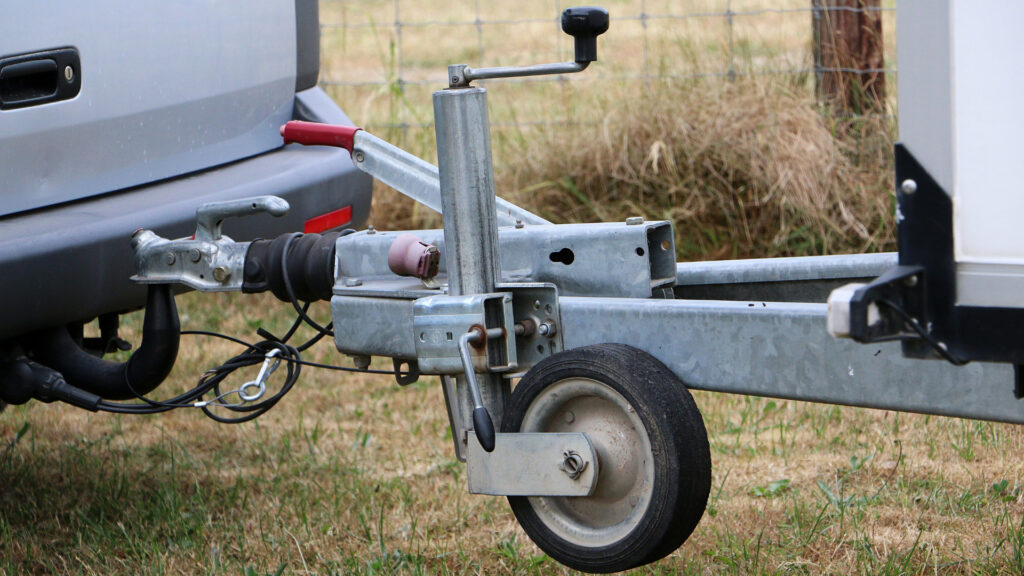
Increases the Life of Brakes
Because your trailer brakes will carry some of the load, you’ll have to rely less on your vehicle’s braking system. Taxing your tow vehicle’s brakes too much can increase the wear and tear on your brake pads and your entire braking system.
This can drastically reduce its life and result in you needing to replace various braking components more frequently.
If you’ve ever had to replace the brakes on your vehicle, it can be a costly maintenance task. However, you want to know that you’ll be able to stop when you press the brakes.
Pro Tip: You don’t want to exceed your vehicle’s towing capabilities. That’s why you need to know What a Good Tongue Weight is.
How Do You Adjust the Sensitivity on Your Trailer Brakes?
Adjust the sensitivity of your trailer brakes for them to be effective. If not, you’re not going to get the intended results.
You could potentially even cause damage to your RV by not adjusting your trailer brakes to the correct setting. Here’s how you can adjust the sensitivity.
Find Settings on Truck Instrument Panel (If Applicable)
If your vehicle has a built-in brake controller, you’ll want to use the buttons on your steering wheel to access the brake controller settings.
Connect your vehicle to the trailer with the brake system and the settings that allow you to increase or decrease the sensitivity of the brake system.
Increasing the sensitivity will apply more pressure to the brakes, and decreasing it will apply less pressure. Because this can vary based on the type of vehicle, you’ll want to check the documentation that came with your vehicle for specifics on how to adjust the controller.
Increase and Decrease Gain on Trailer Brake Controller as Necessary
You want to dial in the brake controller so you have the right amount of assistance from the trailer brake.
If you set your brakes’ sensitivity too high, the brakes will lock up and cause your tires to skid to a stop. However, adjusting your trailer brakes too lightly will tax your vehicle’s brakes too much.
While you can adjust your trailer brakes on any surface, a gravel parking lot or road is best. Simply get up to 10 or 15 miles per hour and squeeze the brakes on your brake controller.
The brakes should be able to bring your vehicle to a stop without locking up the brakes or skidding. Continue to increase the sensitivity until you find the sweet spot for your rig.
Adjust Your Trailer Brakes for Each Load
Once you set your trailer brakes, you won’t likely have to adjust them as long as you’re hauling the same load.
However, if you tow various trailers or have added a substantial amount of weight to your trailer, you’ll want to recalibrate them before hitting the road.
Even if you’re towing the same trailer, it’s a good idea to squeeze them and make sure they’re working before hitting the road. You don’t want to come down a hill and discover that your trailer brakes aren’t working.
Keep in Mind: How Do You Survive the Death Wobble? Click the link to find out!
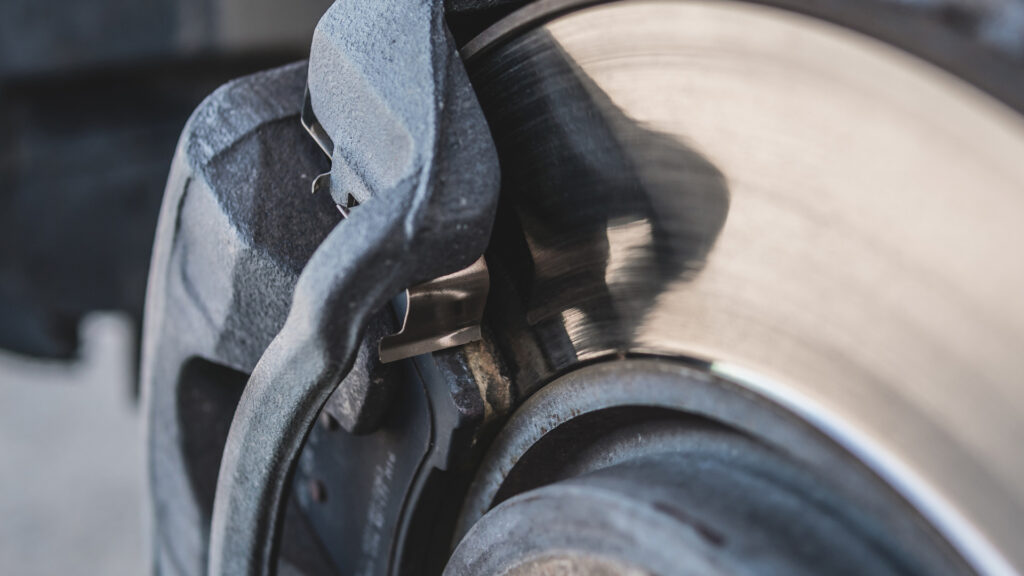
Are Trailer Brakes Necessary?
Trailer brakes are necessary, especially on heavier loads. Make sure you familiarize yourself with the rules and regulations for when you need to have and use a trailer brake.
The rules and regulations vary from state to state, so it’s important to know the rules where you live. You can never take safety too seriously when hauling heavy loads.
So make sure you check your brakes regularly and keep them maintained.




